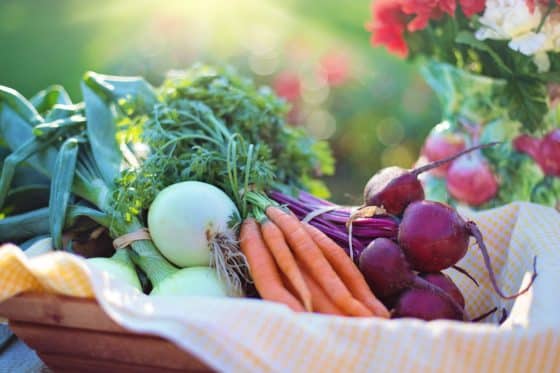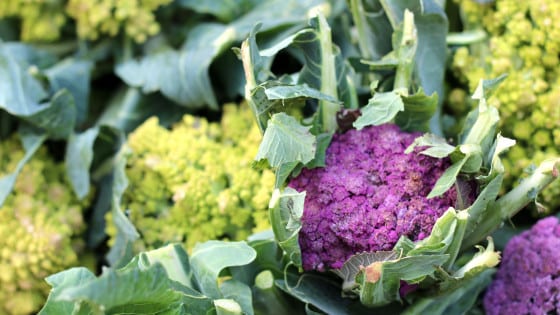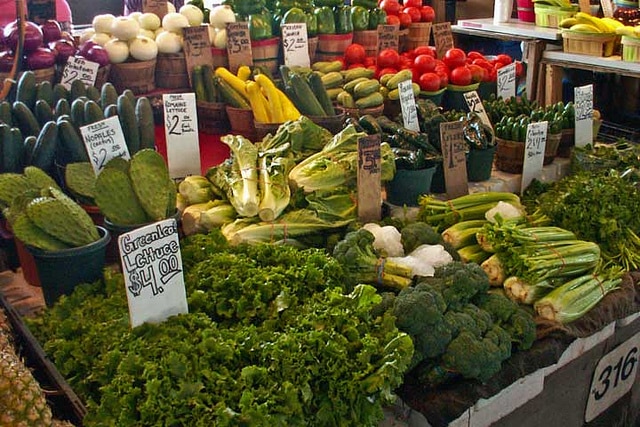
Why Is Reducing Our Food Waste Important?

Food waste is a very serious issue not only in the UK, but across the entire world. It’s so big an issue that it has impacted everyone in so many aspects, all of which, to a very high degree.
Here are some of the alarming facts from the Waste and Resources Action Programme (WRAP) 2015 report:
- In the UK, £13 billion worth of food was thrown away rather than being eaten.
- The estimated amount of household food waste in the UK was 7.3 million tonnes.
- The amount of avoidable household food waste or those that could have been eaten was 4.4 million tonnes.
- The average household food waste per person per year was 112.6 kgs.
- 60% of wasted food could have been eaten.
- 19 million tonnes of greenhouse gas emissions was associated with household food waste.
The good news is that between 2007 and 2012, the total amount of household food waste in the UK decreased by 15%. Avoidable food waste, on the other hand, dropped by 21%. Unfortunately, though, the food industry failed to meet the commitment to reduce them by 5% between 2012 and 2015.
Despite combined efforts and raising awareness, a lot of food still ends up in the trash. It’s a chain reaction. When you throw edible food, you’re wasting money. You’re contributing to more waste. You’re increasing your environmental footprint.
And the list goes on.
[my_ad_code]
Importance of reducing food waste
Reducing food wastage brings a ton of benefits. Considering how much food goes to waste, imagine how much everyone can save in their food expenses. With that being said, here are significant reasons why food waste should be lessened.
Financial impact
During the five years where the UK was able to reduce its food waste, households were able to save £6.5 billion. Additionally, £86 million was saved through avoided food waste disposal costs. The logic is quite simple really — buying less food means more money is saved.
Environmental impact
Taking into consideration the same 5-year period (2007-20012) in the UK, 3.4 million tonnes of greenhouse gases were avoided per year. Putting that into perspective, that’s comparable to taking 1.4 million cars off the road for a year. A very significant portion of greenhouse gases did not end up in our atmosphere during this time.
Energy and resources conservation
As well as reducing pollution emitted by wasted food, lots of energy and resources are also conserved in the process. From growing crops, manufacturing, transportation, and selling of food — all of these processes consume energy and resources.
When there’s less demand for food production, fewer resources are needed. And when fewer resources and energy are used, more is saved for future generations to use.
Ways to reduce food waste
So how exactly can you contribute to lowering food wastage? There’s a lot you can do, and it needs to be done by everyone. A combined effort is what’s needed to win this battle. And you can start with the following tips:
Make the most of what you have
Before you head out to the supermarket, take time to check your cupboards, fridge, and other food storage you might have. You may still have open packets of food that can still be used. It’s also very important you learn the difference between ‘best before date’ and ‘use by date’.
Most people get confused between the two, thinking both mean the same thing. Many people throw away food that has reached its ‘best before date’.
The truth is, the ‘best before date’ is used to indicate the ‘peak quality’ or freshness of a product. It doesn’t necessarily mean a product past this date is not safe to consume. Use your nose and your taste buds as these are great tools in telling if food has already gone bad.
What you need to pay attention to, is the ‘use by date’. Never consume food that’s already past this date. It’s not safe, not healthy, and can be dangerous.
[my_ad_code]
Grow your food
If you want to make a green investment, growing your food is a brilliant starting point!
Buying locally-grown food is a good way to minimise your impact on the environment, but growing your own takes it a step further. Veggies and herbs, for instance, are perfect plants for gardening beginners.
Growing your food gives you a special kind of connection to it thus, you savour it more. Another benefit worth mentioning is foods grown from your garden will stay fresh longer. That’s because no transportation is required, which is one way of shortening their lifespan.
This is also a great way to reduce your carbon footprint. Manufacturing food and transporting uses a lot of energy and resources. The transportation process, in particular, burns a lot of fossil fuels which contributes to air pollution while consuming a finite source of energy.
Here are other benefits of growing your food:
- Saves money
- Makes your food nutritious and healthier
- Gardening is a healthy outdoor activity
- Relieves worry regarding food safety (pesticides and other chemicals)
- You can make your own natural pesticides
- Gives a great sense of accomplishment
Compost kitchen scraps
Another great way to reduce food waste is by composting kitchen scraps. Doing so not only reduces the amount of household waste but also lessens the costs associated with the rubbish collection.
Composting can seem like a daunting concept to many, especially if gardening is something you’re not familiar with. For most, the confusing part is knowing what you can put in your pile, and what you can’t. However, it doesn’t need to be complicated.
When you’re starting out, one fail safe is to avoid putting any meat scraps or dairy products in the compost bin. They can be composted, but they need to be handled properly. Failing to do so can result in a very smelly pile that attracts pests.
Your compost will be ideal to use for growing your food, as it will be rich in all the nutrients your vegetables and herbs need. This is why when it comes to gardening, composting is an excellent decision. Here’s why:
- It’s affordable and gives you a lot of value for your money.
- It reduces your environmental impact.
- Your soil and garden will love it.
- It keeps your plants healthy and disease-free.
- It contributes to the conservation of water.
Be creative
Specifically, be creative with leftover food.
Leftovers are usually thrown away which end up in landfill creating more and more waste. But that’s not how it should be. If you’re wondering what else you can do with leftovers aside from throwing them, you can start with these great leftover recipes.
‘Love Food Hate Waste’ is a campaign geared towards raising awareness of the need to reduce food waste. Aside from the mouth-watering recipes, the campaign provides information on other practical ways of reducing food waste, some you’d never even think were possible.
Of course, make sure the leftovers you’re going to be using are still good. Otherwise, it’s better just to throw them in the compost bin.
Practice portion control
Controlling the amount of food you make or put on your plate is one of oldest and easiest ways to reduce food waste. It’s all about self-control. While it’s tempting to make or eat more food than you can actually manage, it’s not a good idea.
You can start by measuring rice or pasta, for instance. A mug of pasta or half a mug of rice is enough for an average person. If you feel like you need more, do it gradually instead of using a lot of food all at once.
This way, food will not go to waste, and leftovers can be a thing of the past.
Start reducing
Food waste is indeed a very alarming and terrifying issue everyone is facing. But looking at the brighter side of things, it’s so easy to overcome. There are so many things you can do to help.
So spread the word. Awareness is the key. This is our planet, and it’s everyone’s job to protect and preserve it before it’s too late.
Author Bio
Emma is a part-time property developer who loves sharing how others can make their homes amazing both inside and out on her blog, Fixtures and Flowers. You can chat with Emma on Twitter.
4 Comments
-
-
-
Estela Hewlett
Pretty! This has been an extremely wonderful post. Thank you
for supplying these details. -



Alex
I think this is a good post especially because food waste is such a HUGE problem! To control food waste I have started a campaign through a website and mobile app called Groliste. It manages all things like food, grocery and other pantry items. So obviously you can prevent food waste.